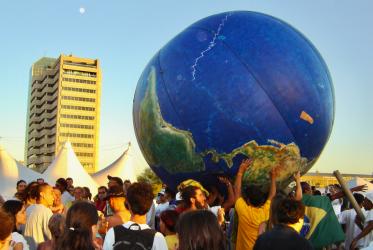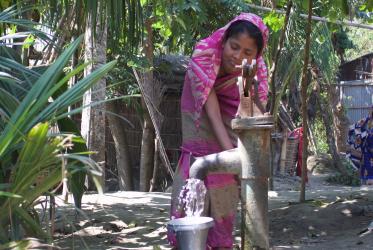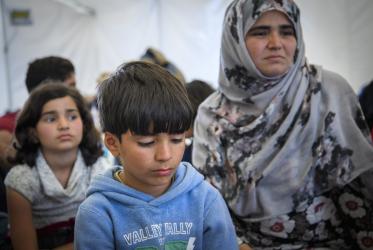Displaying 1 - 20 of 21
09 February 2024
Climate crisis fuels existing water injustice
27 October 2021
New WCC “Eco Ambassadors” pledge to protect our ecology
06 January 2020
Eco-School promotes blue communities, green churches
19 November 2019
WCC Eco-School begins in Thailand
07 November 2019
WCC represented at G20 Interfaith forum in Tokyo
13 June 2019
Echoes from Yangon
26 October 2017
G20 summit: call to pray for peace in Hamburg
07 July 2017
During Lent, a “carbon fast” can honour God’s creation
09 February 2017
WCC Executive Committee issues statement on climate justice
25 November 2016
Consultation considers right to food in context of climate change
15 December 2015
Land rights focus of panel discussion
17 November 2015













